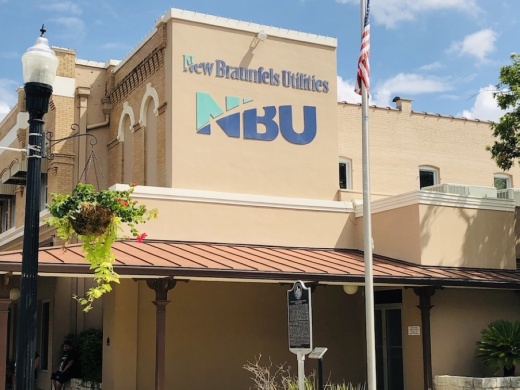The proposed rate adjustments will allow NBU to maintain prudent financial operations, appropriate debt coverage ratios and adequate reserve fund levels for electric operations, according to NBU.
NBU is proposing a new rate plan for FY 2023-24 and FY 2024-25. Overall, electricity rates will increase by an average of 4.8% in FY 2023-24 and 5.9% in FY 2024-25.
Based on results from the cost-of-service study, NBU has recommended an average increase of sewer rate charges by 7.3% over the next two years. Water rates are proposed to increase by an average of 9.1% in FY 2023-24 and 13.4% in FY 2024-25.
The new electric, water and wastewater rates are driven primarily from the need to acquire a new water supply and build infrastructure to keep up with growth and meet regulatory requirements set by the Texas Commission on Environmental Equality, according to NBU.
According to NBU's Chief Financial Officer Dawn Schriewer, the utility estimates growth across all lines of its business to be at 4.9% over the next five years.
“Growth is one of the most important assumptions that goes into our plan,” Schriewer said. “And we were really concerned about a downturn in growth due to rising interest rates. We did a lot of extensive research and reached out to multiple sources to get a pulse on the growth rates.”
According to New Braunfels Utilities CEO Ian Taylor, NBU has a deficit in full-time employees and has been operating understaffed. NBU has 353 employees, but according to a workforce planning study, it needs to have 462 employees to be considered fully staffed. There are plans within the five-year proposed budget to help fund additional staff within the organization.
“We have about a 30% deficit in full-time employees right now,” Taylor said. “And it’s a problem for delivering services at the level that folks expect of us.”
For the first time, the Rate Advisory Committee was formed to make recommendations to determine a cost of service based on customer class, accommodating growth, revenue sufficiency, utility stability and financial strength, among other considerations.
Committee chair Justin Meadows gave a presentation to City Council on the recommendations the group made to the NBU board of trustees regarding the rate structure.
“The Rate Advisory Committee is recommending spreading out rate [changes] over a set period of time rather than exposing ratepayers to potentially significant swings in rates, whether up or down, year over year,” Meadows said.
The committee recommended NBU’s utility bill assistance program funding increase alongside the increase in utility rates to provide additional support to customers.
“This is a terrific recommendation from the advisory committee,” Taylor said. “They said, ‘Look, if your bills are going to be going up, then the amount that you budget for the utility bill assistance program needs to go up proportionately.’ And so that is what we intend to do.”
Some of the other recommendations that were made by the committee that will be implemented include focusing on conservation efforts and creating new customer classes for water users with the intention of lowering certain customers' bills, including large commercial water customers and those who use less than 3,000 gallons per month.
“As you consider the Rate Advisory Committee feedback and NBU is proposing to you today remember, about 80% of it is about capital,” Meadows said. “And so as I’ve gone around and spoken to various groups, I remind them that, yeah, things have to get worse before they get better. But I’d rather things get worse than have sewage running down our streets. I don’t think anybody would appreciate not having water or electricity.”
Mayor Rusty Brockman said things have not been easy for the utility company since Winter Storm Uri occurred in February 2021, but community input and the formation of the RAC has led to improvements for NBU. Brockman said the future capital improvement projects, which take up around 80% of the proposed budget, are imperative to the city.
“There's no way on God's green earth that I want to continue to kick this can down the road for my kids and my grandkids or your kids to have to deal with,” Brockman said. “This is a big issue moving forward. We've got the opportunity as a community to work together and make it happen.”
Freese and Nichols, an engineering firm, completed a study over the past two years with recommendations on proposed rate changes for NBU to implement, which were reflected in the presentation given to council.
The utility is also planning to invest in new technology and continues to plan its new headquarters, which would move it out of the building on Main Street.
New Braunfels resident Laurie Shrank spoke at the meeting in opposition to the rates increasing.
“For now, over three years, I and others have come before you and have asked you to put a moratorium on development until our infrastructure and stuff can all get caught up,” Shrank said. “We've been ignored. Now we're going to pay the price for it.”
All three items to amend the city ordinance and make changes to electricity, wastewater and water rates were approved unanimously by the City Council. The City Council will consider the second reading to approve the ordinance amending the rate plan during a regular meeting at City Hall on April 10 at 6 p.m.
Customers who have questions regarding the proposed rate change are encouraged by NBU and City Council to call the NBU customer service line at 830-629-8400. More information on the proposed rate change can be found at www.nbutexas.com/rate-plan/.





